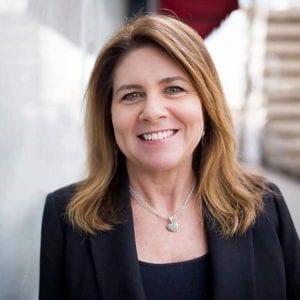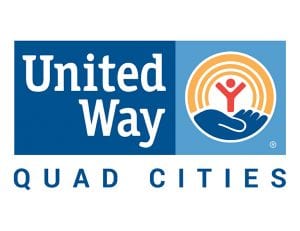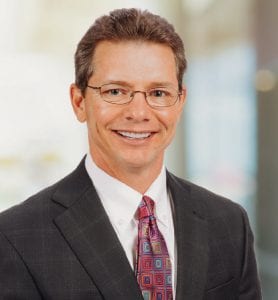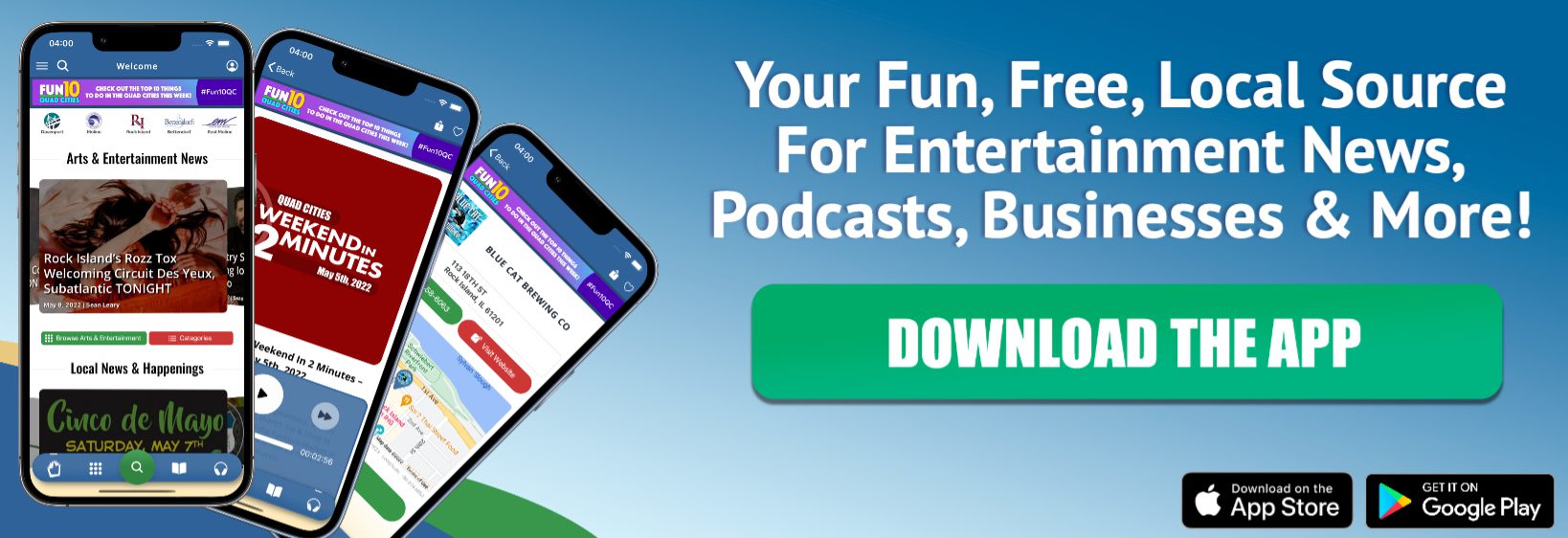Quad-Cities Institutions Put Their Money Where the Equity Is
Thirteen banks and credit unions serving the Quad-Cities have pooled their resources to give more than $130,000 to the United Way’s United for Equity Fund, created to address and solve inequities in education, income and health.

Rene Gellerman is president/CEO of United Way of the Quad Cities.
Among the financial institutions are Ascentra Credit Union, Bank of America, BankORION, Blackhawk Bank & Trust, Blue Grass Savings Bank, Deere Employees Credit Union, IH Mississippi Valley Credit Union, Northwest Bank and Trust, Quad City Bank & Trust, R.I.A. Federal Credit Union, SENB Bank, TBK Bank and The Family Credit Union.
“We are so grateful to the Quad-Cities area’s financial leaders for their inspiring collaboration to drive equitable change — and proud to be part of this unprecedented collaboration,” United Way President/CEO Rene Gellerman said this week.
“Putting opportunity in the hands of every Quad Citizen is why our financial and banking organizations are coming together to support United for Equity. Their collective investments, dedication and their passion for a stronger, more equitable region will help drive transformational change and strengthen the building blocks of opportunity for all Quad Citizens.”
Northwest Bank and Trust President & CEO Joe Slavens was an early supporter of the United for Equity project, and personally reached out to executives to do their part to raise living standards for everyone in the community.
“This year, the spotlight on Covid-19 has been shared by the painful reality that despite the progress we have made to reduce minority disenfranchisement, we still have so much more to do,” Slavens said. “And, while we might like to think that inequity does not exist in Quad Cities, the United Way and the African American Leadership Society have tracked racial disparities that divide the community in areas that affect quality of life.”
The results of Slavens’ and Gellerman’s outreach efforts have been overwhelmingly positive, and have resulted in local financial institutions

United Way is raising $200,000 for a new United for Equity Fund.
accounting for more than half of the $200,000 goal for the United for Equity Fund.
The fund will provide grants to social entrepreneurs, grassroots organizations and nonprofits advancing innovative efforts aimed to reduce racial disparities.
“United Way uses its resources and networks to bring the best people, ideas and projects together to create opportunities for all Quad Citizens,” Slavens said. “By coming together — as executives, co-workers or individuals — we can change not just the statistics, but more importantly, the lives of our fellow Quad Citizens.”
Additional information on the United for Equity grants will be available at the Thursday, Nov. 19, virtual event Courageous Conversations: Equity in Action.
 At the one-hour Zoom event, the following will take place:
At the one-hour Zoom event, the following will take place:
- You will be informed about what came out of the United Way Oct. 15 Equity Summit. Social action experts, Harold Hogue II and Lauren Coppedge of COSPERO Social Impact Consultants, will share the key issues, strategies and priorities that emerged from the Equity Summit.
- You will hear from United Way’s Equity Investment Volunteer Panel, which will help identify the community groups that will receive for up to $200,000 in funding to transform equity-focused priorities into actions. Local social entrepreneurs and grass roots organizations will learn how to submit proposals for grants.
- You will also meet allies, that show you live in a community that shows up and stands up to put opportunity in the hands of all Quad Citizens.

Joe Slavens is president/CEO of Northwest Bank & Trust.
Registration for the free event closes on Nov. 17.
At the virtual Equity Summit, the nonprofit had over 400 people in 29 small groups talking about five topics – cultural trauma, economic opportunity, youth development, power sharing and diversity in the workplace, said Gwen Tombergs, vice president of development.
“But what was most impressive was the input about solutions to all of those challenges,” she said. “Next up, all of the conversation notes are going to a third-party consultant to create a report to our community. Everyone is invited back to hear the report and meet the Black-led Grants Committee who will help to decide which solutions should be considered first and funded.”
United Way Q-C has just launched its third and last session of the 21-Day Equity Challenge, which runs Oct. 26 to Nov. 15, with the most participants yet, said United Way spokesman Kevin Smith. Collectively, they’ve gotten over 1,800 signups for the Challenge.
Gellerman has pointed out the following racial disparities in the Quad-Cities that United Way wants to address:
Income
- African-American Quad Citizens are four times more likely to live below the federal poverty line than white residents.
- More than half (56%) of local African-American preschoolers live in poverty compared to only 15% of white preschoolers.
- Average annual income for an African-American household is $37,335; $57,440 for white Quad-Cities households.
Quality of Life
- 67% of African-American Quad Citizens rent vs. own a home, compared to 27% of white residents who rent.
- 48% of the Quad Cities’ African-American family households are led by a single mother, compared to only 9.5% of white families.
Education
- 71% of African-American kindergarten students entered school prepared, compared to 84% of white students.
- 43% of African-American third graders are reading at grade level, compared to 73% white students.
- 17% of African-Americans do not complete high school within four years, compared to 10% of white students.
Health
- African-American Quad Citizens are more likely to develop heart disease, diabetes, asthma and to be living without health insurance.

The deadline to register for the Nov. 19 Zoom event is Nov. 17 by noon.
“These disparities and divides that we’ve created — between Black and White — are bad for all of us, not just some of us,” Gellerman wrote on unitedwayqc.org.
“Persistent and underlying racism, prejudice and privilege prevent too many people from having the opportunity and access to develop their full potential. We have to do more to prioritize equity in our schools, jobs and health care; we need to ensure that the basic rights and freedoms of everyone are protected.
“I believe in this region. But I am frustrated by the lack of a regional, bold commitment to a shared vision like Q2030,” she said. “I’m frustrated that we keep doing and saying the same things and expecting different outcomes.”
To learn more about United Way Quad Cities and the United for Equity project, visit www.unitedwayqc.org.











